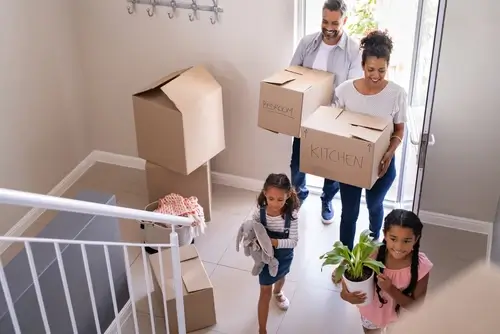
Whether you are a first-time home buyer or ready to trade up, you’ll have to choose between a new construction and an existing dwelling. Neither is necessarily better than the other; they offer different benefits and challenges. Here’s a guide to helping you decide which is a better fit for you.
Pros of Buying a New Home
- Modern Amenities and Features: New homes usually have all the cool new amenities you might want. They come with things like smart technology that can control your house, energy-saving machines that help you save money on bills, and designs that look very modern. It's like having a house from the future!
- Minimal Repairs and Maintenance: One of the most appealing aspects of a new home is the reduced need for immediate repairs. With everything fresh and new, you're less likely to face unexpected maintenance costs in the initial years.
- Energy Efficiency: New homes are built with energy conservation in mind. Enhanced insulation, efficient windows, and energy-saving appliances can significantly lower your utility bills.
- Customization: Many new home constructions offer customization options. From selecting paint colors to choosing flooring materials, you can personalize your living space to match your preferences.
Cons of Buying a New Home
- Higher Costs: The allure of newness comes at a cost. New homes are generally more expensive than older ones, and additional expenses like landscaping may be required.
- Limited Character: New homes might lack the unique charm and character that older homes often possess. The history and stories associated with an older home can be appealing to some buyers.
- Neighborhood Development: If you opt for a new home in a developing neighborhood, you might have to tolerate ongoing construction, lack of amenities, and uncertainties about the community's future.
Pros of Buying an Older Home
- Character and History: Older homes come with a sense of history and character that can be hard to replicate. Architectural details, original hardwood floors, and vintage fixtures can imbue a unique charm.
- Established Neighborhoods: Older homes are typically found in established neighborhoods with mature trees, friendly neighbors, and convenient access to schools and amenities.
- Potential for Value Appreciation: Some older homes, especially those in well-preserved historic districts, have the potential to appreciate in value over time, offering a potentially profitable investment.
Cons of Buying an Older Home
- Maintenance and Repairs: Older homes may require more frequent and costly repairs due to wear and tear. Outdated systems and appliances can also add to maintenance expenses.
- Energy Inefficiency: Older homes may lack modern energy-efficient features, resulting in higher utility bills.
- Limited Modern Amenities: Features like walk-in closets, open floor plans, and updated kitchens that are prevalent in new homes might be lacking in older constructions.
The choice between a new and an older home hinges on your priorities, preferences, and financial capabilities. New homes offer modern conveniences and minimal initial repairs, but at a higher cost. Older homes exude character, are often situated in well-established neighborhoods, and can hold potential for value appreciation. However, they might demand more maintenance and lack some modern amenities. By weighing these pros and cons alongside your personal circumstances, you'll be better equipped to make a decision that aligns with your long-term aspirations.
If you're in the market for a new home, give us a call today so that we can help you get Pre-Approved to buy a new home!

